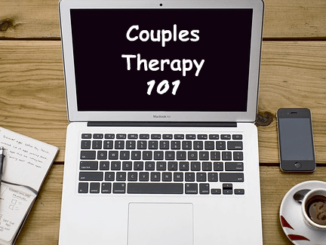
You want couples therapy and they don’t. Know what?
Picture this: you’re living your life in Chicago carefree and positive. You’re getting along great with your partner, with a strong connection between the two of you.
Friends and family might even be envious of the connective relationship and support that you have for each other.
Somewhere down the line, you start to feel the relationship shifting. The communication gets worse, simple conversations escalate to heated arguments, and you don’t think you know your partner that well anymore.
Both of you try to find ideas for how to resolve this issue, which mostly work, but don’t help with maintaining the momentum you want.
Eventually, you start to consider couples counseling to help with your relationship. You bring it up to your partner, suggesting it’d be a good idea to get some moderation or guidance into your present struggles. But here’s the thing, your partner doesn’t want to go into couples counseling! So, what can you do?!
Perhaps your partner is worried that this means the relationship has hit its low point. Or maybe your significant other has their own thoughts about what counseling is. Truth is, at Couples Counseling Chicago, we understand that there might be some hesitance somewhere in entering couples counseling.
Here’s some pointers to understanding your partner’s reasoning for saying “no”, and what you can do.
1) Previous experience?
Is it possible that your partner might have had experience in therapy before, and found it was a waste of time? Sure, that’s a valid reason to not want counseling.
If your partner has had a bad experience with therapy before, what would going to couples counseling mean to them? In this case, there’s the chance that they realize the relationship near its end and coming in might just confirm that for the partner. They might be scared that this is the last resort in salvaging everything.
2) Counseling can be collaborative and positive!
It’s also possible that your partner might already have their own thoughts about what counseling and therapy is. After getting an understanding of your partner’s possible experience or perceptions about counseling, you can explain that seeking help is not about venting or blaming the other.
Instead, consider that it’s about working together to pinpoint what is needed in the relationship; stopping negative patterns and addressing issues in a safe, collaborative setting.
3) Different levels of pain in the relationship
One of the main reasons a partner would reject the idea of couples therapy is because they aren’t on the same level of frustration about the relationship that you are.
Yes, there are many couples that feel like they’re both doing just fine. When in reality, one partner might be just at the tipping point in “being done”.
Understanding where your partner is in terms of their level of frustration and pain can be a crucial tool in understanding your relationship.
It is more powerful for both parties to admit that they want to work on their issues together than sabotaging everything and pushing such issues under the rug.
A relationship takes effort, there’s no denying that. It is very understandable that you might hit a standstill.
As we continue to work towards understanding our partner, and where the relationship is headed, trust can be fostered and helps create that vulnerability for both partners to willingly attend couples counseling together.
If you’re living in the Windy City and would like to consider coming into couples counseling with your partner, our counselors are more than welcome to helping you with that!
Don’t hesitate to give us a call at 773.598.7797 or send us a confidential note via our contact form.
Thanks for stopping by!



